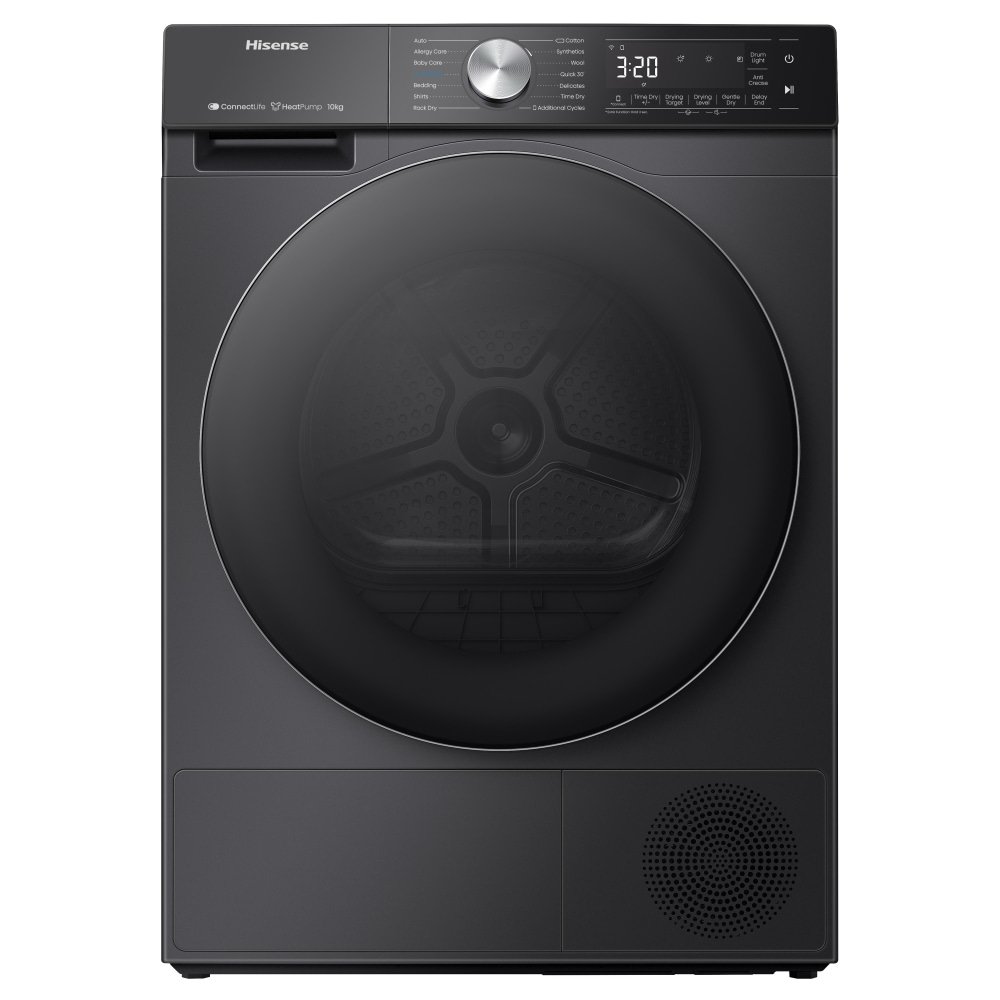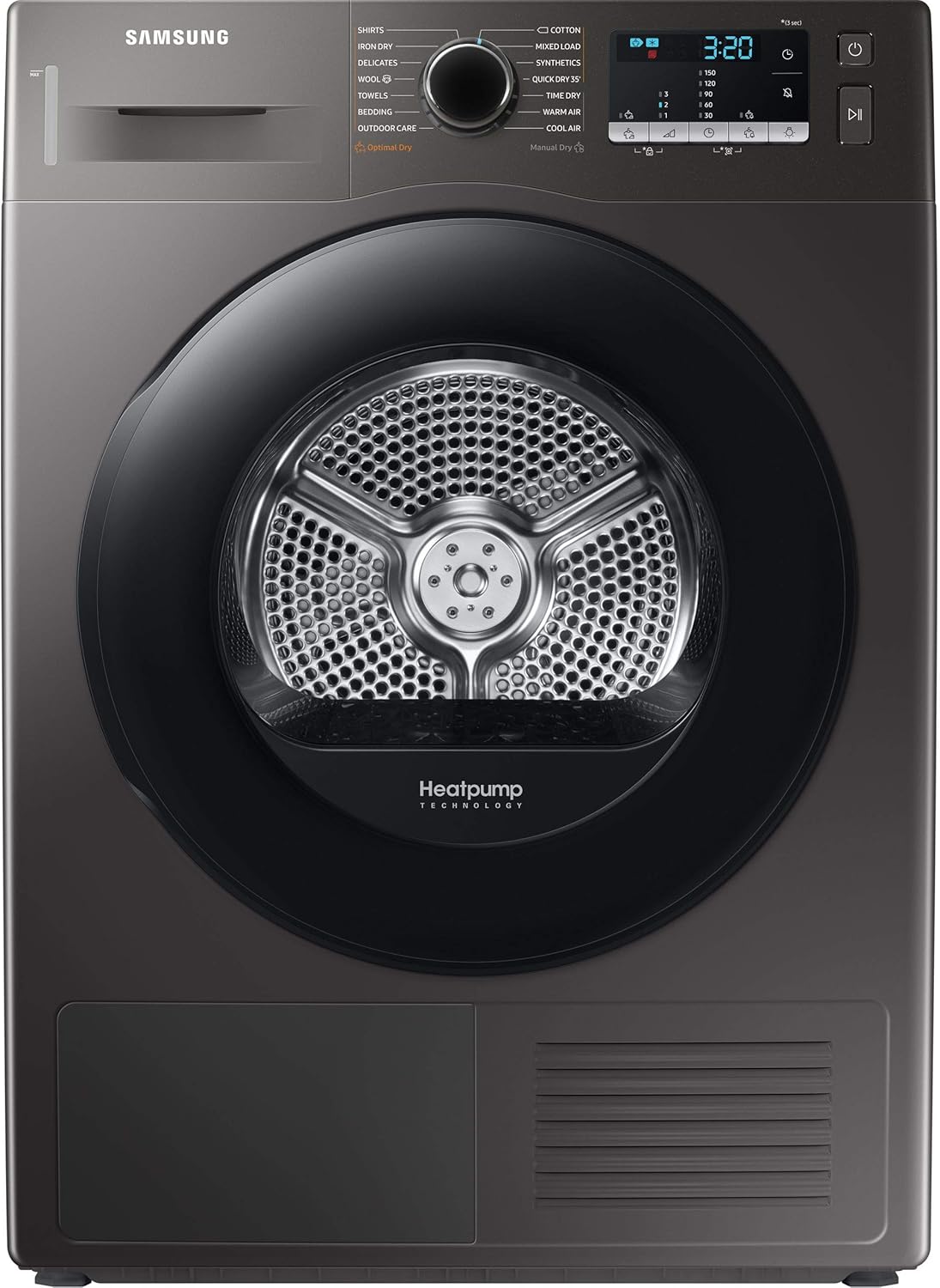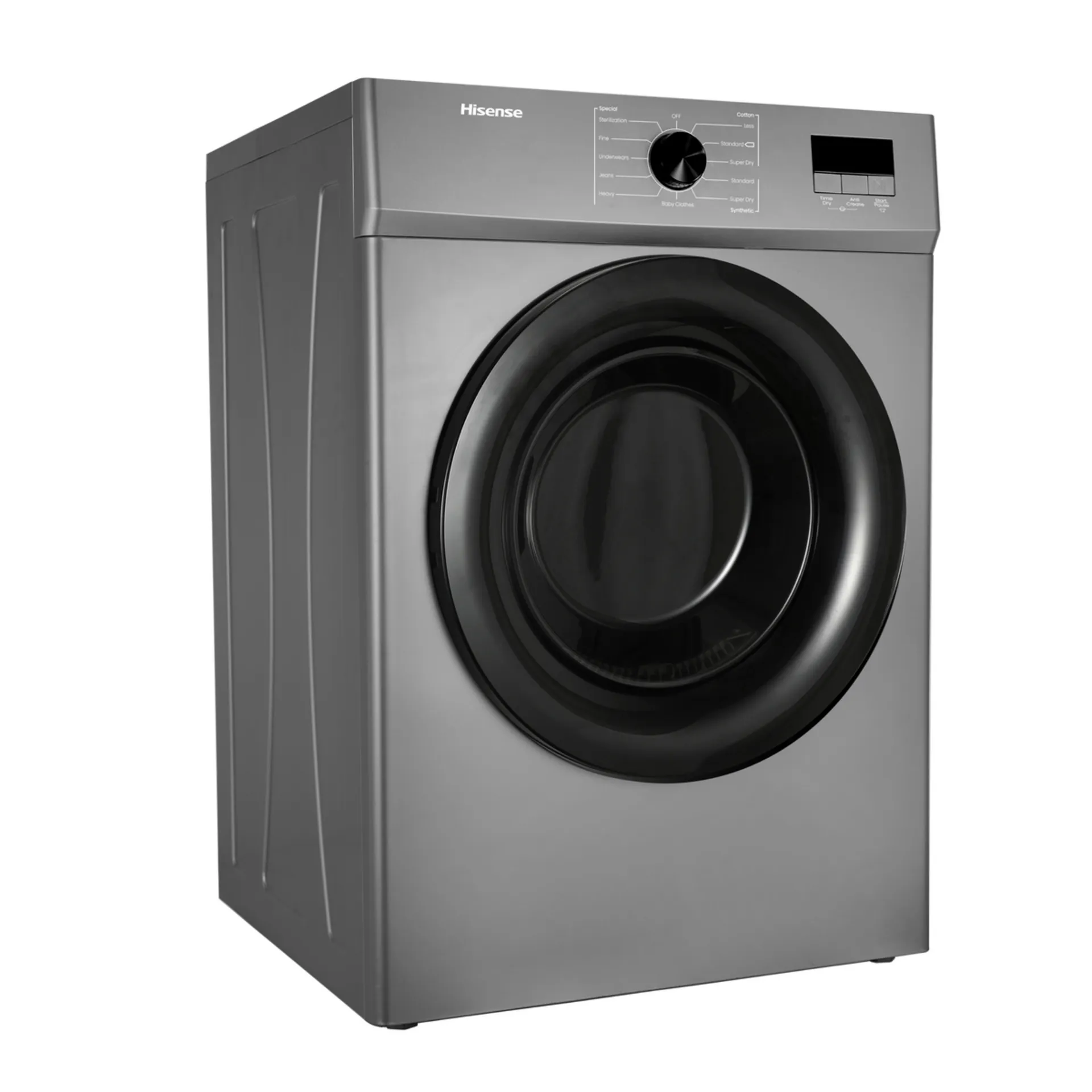-
Clothes Dryer Machine
Looking for a dryer machine in Tanzania? Choose a wide selection of dryer machines at best price. Clothes dryer machines helps you get your laundry dry and ready to wear in a short time.
-
Clothes Dryer Machine
Looking for a dryer machine in Tanzania? Choose a wide selection of dryer machines at best price. Clothes dryer machines helps you get your laundry dry and ready to wear in a short time.
-
Sort by
-
Price
-
Brand
-
Color
-
Drying capacity
-
Dryer Type
-
Hisense 10kg Heat Pump Dryer Machine | 17 Drying Programs | A+++ Energy Rating DH5S102BB
-
1,400,000 Tsh
1,500,000 Tsh -
FREE Delivery
-
Samsung 9kg Heat Pump Tumble Dryer | DV90TA040AZ/EU
-
2,050,000 Tsh
-
FREE Delivery
-
Hisense 8kg Air Vented Dryer Grey DV1W801UT
-
850,000 Tsh
-
FREE Delivery
Hisense 10kg Heat Pump Dryer Machine | 17 Drying Programs | A+++ Energy Rating DH5S102BB
1,400,000Tsh
Buying Guide for Dryer Machines.
1. Dryer Capacity
Choosing the right capacity for a dryer is crucial to ensure it meets your household's laundry needs effectively. Here's how to determine the appropriate capacity:
- Household Size: Consider the number of people in your household and their typical laundry habits. A larger household will generally require a dryer with a larger capacity to handle more clothes per load.
- Laundry Frequency: Assess how often you do laundry. If you wash frequently, a larger capacity dryer can help you manage larger loads or multiple loads in a day without overloading the machine.
- Type of Clothing: Think about the types of clothes you typically dry. Bulky items like towels and bedding will require more space compared to lighter fabrics like shirts and socks.
- Drum Size: Dryer capacity is typically measured in kilograms or pounds of laundry. For example, a 7kg capacity dryer can handle about 7kg of dry clothes per load. Match the capacity to your washing machine's capacity to ensure balanced drying.
- Space Available: Consider the physical space where the dryer will be installed. Ensure there is enough room for the dryer to fit comfortably and for you to load and unload laundry without difficulty.
- Future Needs: Anticipate any changes in your household size or laundry habits in the future. Choosing a slightly larger capacity than your current needs may be beneficial to accommodate future changes.
Drum Capacity: We recommend taking 1kg to be enough space for one complete outfit (a top, bottoms and underwear).
2. Dryer Type : Air vented, Heat pump and Condenser
Air Vented Dryers:
- Operation: These dryers expel hot, humid air outside through a vent, typically through a wall or window.
- Efficiency: They are generally less energy-efficient compared to other types because they expel heated air along with moisture.
- Installation: Requires proper ventilation setup to expel air outdoors, making them suitable for homes with accessible venting options.
Condenser Dryers:
- Operation: Condenser dryers collect moisture from the clothes in a reservoir or drain it directly, rather than venting it outside.
- Efficiency: They are more energy-efficient than vented dryers because they recycle warm air and condense moisture, reducing energy loss.
- Installation: No external venting needed, making them suitable for apartments or homes where venting is difficult or impossible.
Heat Pump Dryers:
- Operation: Heat pump dryers use a heat pump to generate and recycle air, extracting moisture from clothes more efficiently than standard dryers.
- Efficiency: They are the most energy-efficient type of dryer, using up to 50% less energy compared to vented models.
- Installation: Similar to condenser dryers, they do not require external venting, making them suitable for various home setups
3. Dryer Energy Rating:
Look for models with high energy efficiency ratings (such as Energy Star ratings) to save on utility bills.
4. Dryer Machine Programs:
Choose machines with versatile drying programs tailored to different fabric types and drying needs (e.g., delicate, quick dry).
5. Dryer Noise Level:
Consider the noise level of the machine, especially if it will be used in a living area or near bedrooms.
6. Price
Set a budget and compare prices across different brands and models to find the best value for your investment.
Buying Guide for Dryer Machines.
1. Dryer Capacity
Choosing the right capacity for a dryer is crucial to ensure it meets your household's laundry needs effectively. Here's how to determine the appropriate capacity:
- Household Size: Consider the number of people in your household and their typical laundry habits. A larger household will generally require a dryer with a larger capacity to handle more clothes per load.
- Laundry Frequency: Assess how often you do laundry. If you wash frequently, a larger capacity dryer can help you manage larger loads or multiple loads in a day without overloading the machine.
- Type of Clothing: Think about the types of clothes you typically dry. Bulky items like towels and bedding will require more space compared to lighter fabrics like shirts and socks.
- Drum Size: Dryer capacity is typically measured in kilograms or pounds of laundry. For example, a 7kg capacity dryer can handle about 7kg of dry clothes per load. Match the capacity to your washing machine's capacity to ensure balanced drying.
- Space Available: Consider the physical space where the dryer will be installed. Ensure there is enough room for the dryer to fit comfortably and for you to load and unload laundry without difficulty.
- Future Needs: Anticipate any changes in your household size or laundry habits in the future. Choosing a slightly larger capacity than your current needs may be beneficial to accommodate future changes.
Drum Capacity: We recommend taking 1kg to be enough space for one complete outfit (a top, bottoms and underwear).
2. Dryer Type : Air vented, Heat pump and Condenser
Air Vented Dryers:
- Operation: These dryers expel hot, humid air outside through a vent, typically through a wall or window.
- Efficiency: They are generally less energy-efficient compared to other types because they expel heated air along with moisture.
- Installation: Requires proper ventilation setup to expel air outdoors, making them suitable for homes with accessible venting options.
Condenser Dryers:
- Operation: Condenser dryers collect moisture from the clothes in a reservoir or drain it directly, rather than venting it outside.
- Efficiency: They are more energy-efficient than vented dryers because they recycle warm air and condense moisture, reducing energy loss.
- Installation: No external venting needed, making them suitable for apartments or homes where venting is difficult or impossible.
Heat Pump Dryers:
- Operation: Heat pump dryers use a heat pump to generate and recycle air, extracting moisture from clothes more efficiently than standard dryers.
- Efficiency: They are the most energy-efficient type of dryer, using up to 50% less energy compared to vented models.
- Installation: Similar to condenser dryers, they do not require external venting, making them suitable for various home setups
3. Dryer Energy Rating:
Look for models with high energy efficiency ratings (such as Energy Star ratings) to save on utility bills.
4. Dryer Machine Programs:
Choose machines with versatile drying programs tailored to different fabric types and drying needs (e.g., delicate, quick dry).
5. Dryer Noise Level:
Consider the noise level of the machine, especially if it will be used in a living area or near bedrooms.
6. Price
Set a budget and compare prices across different brands and models to find the best value for your investment.
Account
About Impala Shopping
Address
Impala shopping
Mezzanine Floor, No 6 Zanaki Street,
Dar es salaam, Tanzania
Email: [email protected]
Phone: +255 759 075 719










